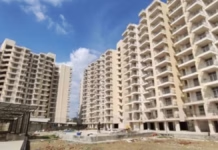Brihanmumbai Municipal Corporation (BMC) plans to deliver 512 new homes by December 2025 under the Ashray Yojana, its flagship housing redevelopment initiative. The civic body expects to complete nearly 12,000 housing units for sanitation workers across the city by mid-2028, signalling a shift towards more inclusive and dignified urban housing.
According to senior officials from the Solid Waste Management (SWM) Department, these homes spread across key localities such as Sardar Nagar, Ravli Camp, Yari Road, Pragati Nagar, and Akurli Road will be allocated through a transparent lottery system to workers currently residing in dilapidated municipal quarters. The BMC has identified 46 existing sanitation quarters across Mumbai, of which 30 have been marked for redevelopment in the first phase. The Ashray Yojana, approved by the civic Standing Committee in 2021, targets areas including Chirag Nagar, Lions Garden, Amrapali Building, Gaikwad Nagar, and Mitha Nagar. Redevelopment work is already underway, with another 3,500 housing units expected to be completed by June 2026.
“The initiative is designed not just to provide new homes, but to ensure these workers—who keep the city running—live in safe, hygienic, and equitable environments,” said a senior civic official involved in the project. Urban planners note that Mumbai’s housing deficit is often most acute among essential service workers. Many sanitation employees, who form the backbone of the city’s waste management system, live in congested, unsafe buildings lacking proper sanitation facilities. Experts argue that schemes like Ashray Yojana are critical to bridging this infrastructural inequity. “Equitable housing is the foundation of sustainable urban development,” said an urban policy expert. “Providing decent homes for municipal workers aligns with the principles of inclusive growth and supports the broader vision of resilient, zero-carbon cities.”
The initiative also underscores the importance of upgrading old municipal land assets to create compact, liveable housing clusters. The use of vertical redevelopment, officials said, would allow the BMC to accommodate more families without expanding its urban footprint—an approach consistent with Mumbai’s sustainability goals. For the BMC, the programme serves a dual purpose: improving living standards while modernising civic housing infrastructure. As Mumbai continues to densify, such projects could serve as templates for socially inclusive redevelopment, ensuring that those who sustain the city’s daily rhythm are not left behind in its urban future.
Also Read: MMRDA To Spend ₹98.55 Crore On Housing For Worli Shivdi Redevelopment
Mumbai eyes inclusive housing reform for sanitation workers under Ashray Yojana







